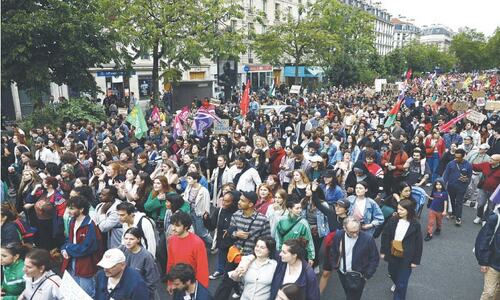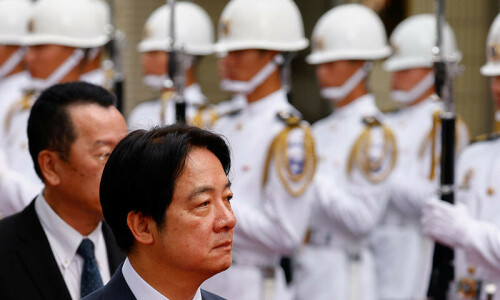BAGHDAD: They can be attentive or distracted, but Iraqis are seldom indifferent and often frustrated with the trial of Saddam Hussein, the man that ruled them with an iron fist for 24 years.
The start of his trial on October 19 was followed with deep interest across the country, not to mention around the world, though much direct attention has slipped since then even though the trial is historic.
“Saddam is being tried for a minor example of his domestic policies, but he could have been put on trial for much more important acts, such as the war with Iran and his invasion of Kuwait, wars which destroyed two populations,” argued Amira Aziz, a 47-year-old Kurd who lives in Baghdad.
Sunni Arab Sarmad Kadar agreed.
“The Dujail case did not deserve such exposure, especially since no witness clearly established Saddam Hussein’s direct responsibility” in the killing of 148 people from the village following a failed assassination attempt against Saddam in July 1982.
Saddam and seven co-defendants are on trial for crimes against humanity, and face hanging if convicted.
Other charges against the former Iraqi dictator, including the alleged 1988 gassing of Kurds in the Kurdish village of Halabja which left at least 5000 people dead and the brutal repression of a Shia uprising in 1991, have not yet been filed with the Iraqi High Tribunal.
Some Iraqis, in particular Sunni Arabs like Saddam, sympathise with him.
“This is a farce and personal revenge because among those trying Saddam Hussein, not one comes anywhere near him,” said Ahmed Khalaf, who lives in the violent town of Ramadi, capital of the western Al-Anbar province.
“There is no reason to judge him for Dujail. Anyone in his place would have done what he did if he had been the target of an assassination attempt,” added the 23-year-old.
Others, however, wanted to see the tribunal wind the case up quickly, especially Shias who often fail to see why such a trial should drag on.
“I would like to see Saddam Hussein quickly condemned to death and executed,” insisted Naji Katee, 42, a member of Iraq’s majority community.
Sunni Arabs make up about 20 per cent of Iraq’s 26 million population and Shias around 60 per cent. Kurds, who are predominantly Sunni, make up about 15-20 per cent and the remainder is Christian or from other smaller sects.
“The Dujail case is nothing compared with the crackdown of the Shia uprising in 1991; it’s really a drop in the ocean of terror and hunger that prevailed throughout the country during Saddam’s reign.”
Among the few Iraqis that agree with how the trial is taking place was Taleb al-Kitan, a southern intellectual who advises the government on legal affairs.
“It’s an example for the Arabs,” he said, praising the cool head and lighthanded manner of presiding judge Rizkar Armin, a Kurd.
Kitan said the choice of Dujail was justified in that the village lay in central Iraq north of Baghdad and that “among the victims were Shias and Sunnis.—AFP












































Dear visitor, the comments section is undergoing an overhaul and will return soon.